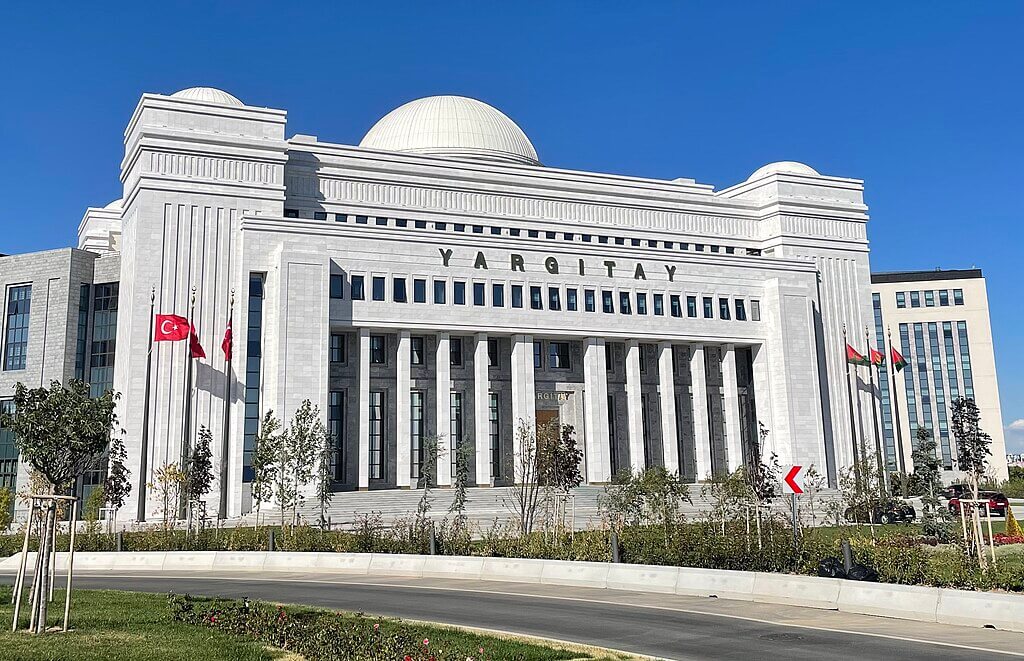
Turkey's political landscape is undergoing a dramatic transformation, one that no longer relies on the democratic process of campaigning and elections but increasingly is determined by prosecutors, judges, and procedural interpretations of the law. The ruling Justice and Development Party (AKP) has relied on legal action as its primary weapon against the opposition Republican People's Party (CHP), with profound implications for Turkey's political system, opposition strategy, and the balance between democracy and authoritarianism.
What began as a series of scattered corruption cases and allegations of procedural irregularities against CHP leaders has morphed into a sprawling legal process that threatens the opposition's organizational survival, leadership legitimacy, and electoral viability. Since March 19th, more than a dozen CHP mayors of major cities and hundreds of their associated officials have been detained, including the party's charismatic leader, Istanbul Mayor Ekrem İmamoğlu. These arrests have sparked massive street protests but have failed to halt the prosecutorial offensive.
For years, the CHP has been relegated to the opposition, failing to defeat the AKP in elections, largely due to its own missteps. While the AKP insists it has nothing to do with the legal battles facing the main opposition party, there are signs it is fanning the flames behind the scenes.
In recent years, the AKP government has capitalized on rising nationalism and its alliance with the Nationalist Movement Party, repeatedly accusing the CHP of colluding with the pro-Kurdish People's Equality Democratic Party (PEP), securing electoral victories. Previously, the AKP launched the so-called "Turkey Without Terror" initiative, aimed at ending the decades-long conflict with the outlawed Kurdistan Workers' Party (PKK). Abdullah Öcalan, the PKK's long-imprisoned leader, called for an end to the party's armed struggle earlier this year. It remains unclear whether the AKP intends to resolve the Kurdish issue or simply exploit it to maintain power.
The CHP currently faces two major legal cases. One of the lawsuits, alleging irregularities at the 2023 CHP congress, has the potential to cause serious divisions within the party. The lawsuit was filed on February 15, 2025, by Lütf Savaş, the former mayor of Hatay province. Savaş entered politics with the Justice and Development Party (AKP) and later the Republican People's Party (CHP). Savaş has been linked to corruption allegations and condemned by the people of Hatay for abandoning them during their darkest hour, following the devastating earthquake on February 6, 2023, which killed over 23,000 people. Despite this, he ran again in the subsequent local elections but ultimately lost. Some political observers consider Savaş a tool of the ruling party, while others believe he is solely motivated by personal gain.
Secondly, a second lawsuit directly targets Istanbul Mayor Imamoglu. This highly popular mayor has defeated AKP candidates three times and is considered a likely candidate to defeat Erdoğan in the presidential election. Initially, the Istanbul Chief Prosecutor's Office charged him with "falsification of official documents," accusing him of fabricating transfer documents from the American University of Gırıne to Istanbul University. On March 19th, Imamoglu was also indicted on charges of corruption, bribery, and rigging public tenders. The indictment against Imamoglu reveals a new reality. With at least eight cases currently underway, each potentially disqualifying him from public office, the opposition's most prominent figure faces a war of attrition: the more lawsuits filed, the greater the likelihood that he will be eliminated from politics.
Overall, against this backdrop, it remains to be seen whether the judiciary can withstand the political pressure from a government seeking to extend its dominance of Turkish politics into its third decade. This issue extends far beyond the Republican People's Party. Despite its own flaws, the CHP cannot be marginalized if the country's future is to conform to democratic norms.

Driven by the Trump administration's push to relax financial regulations and the recovery of investment banking business, the market value of the six major banks in the United States has cumulatively increased by approximately 600 billion US dollars by 2025.
Driven by the Trump administration's push to relax financia…
On Christmas evening, U.S. President Trump posted on social…
According to multiple foreign media reports, the recent fin…
The middle class, once regarded as the cornerstone of Ameri…
On December 19th local time, the US military launched a lar…
The Boxing Day sunshine should have cast a false glow of pr…